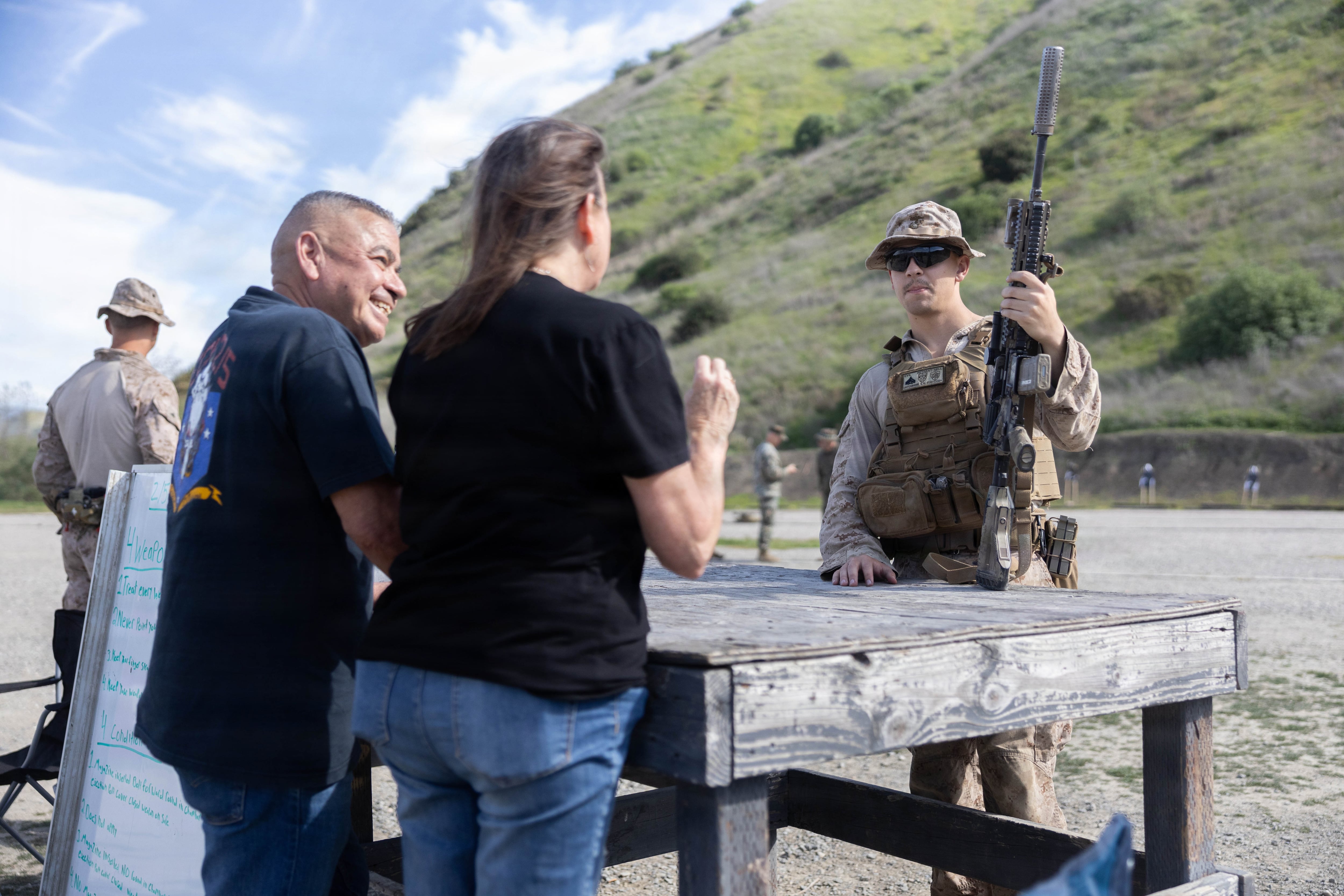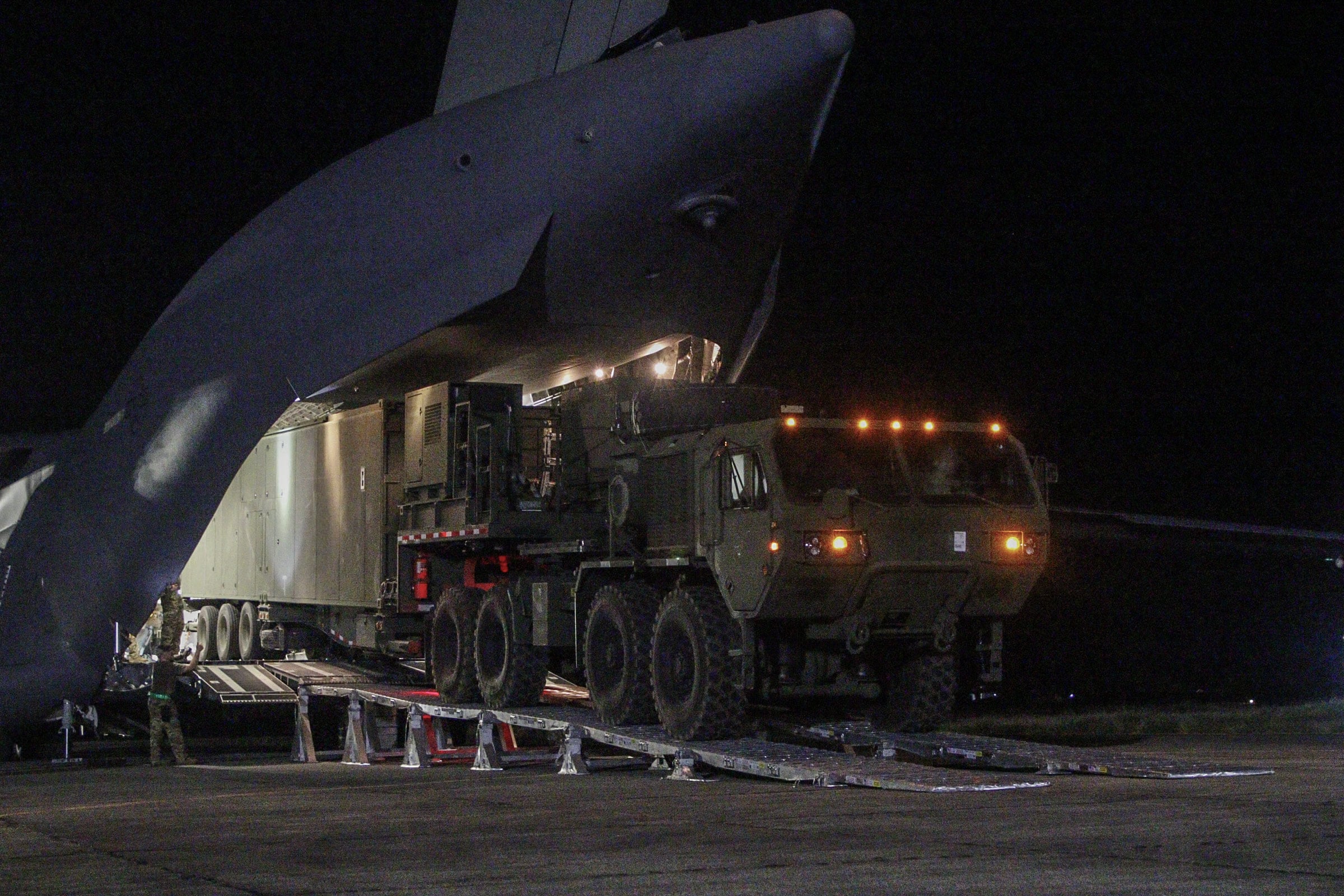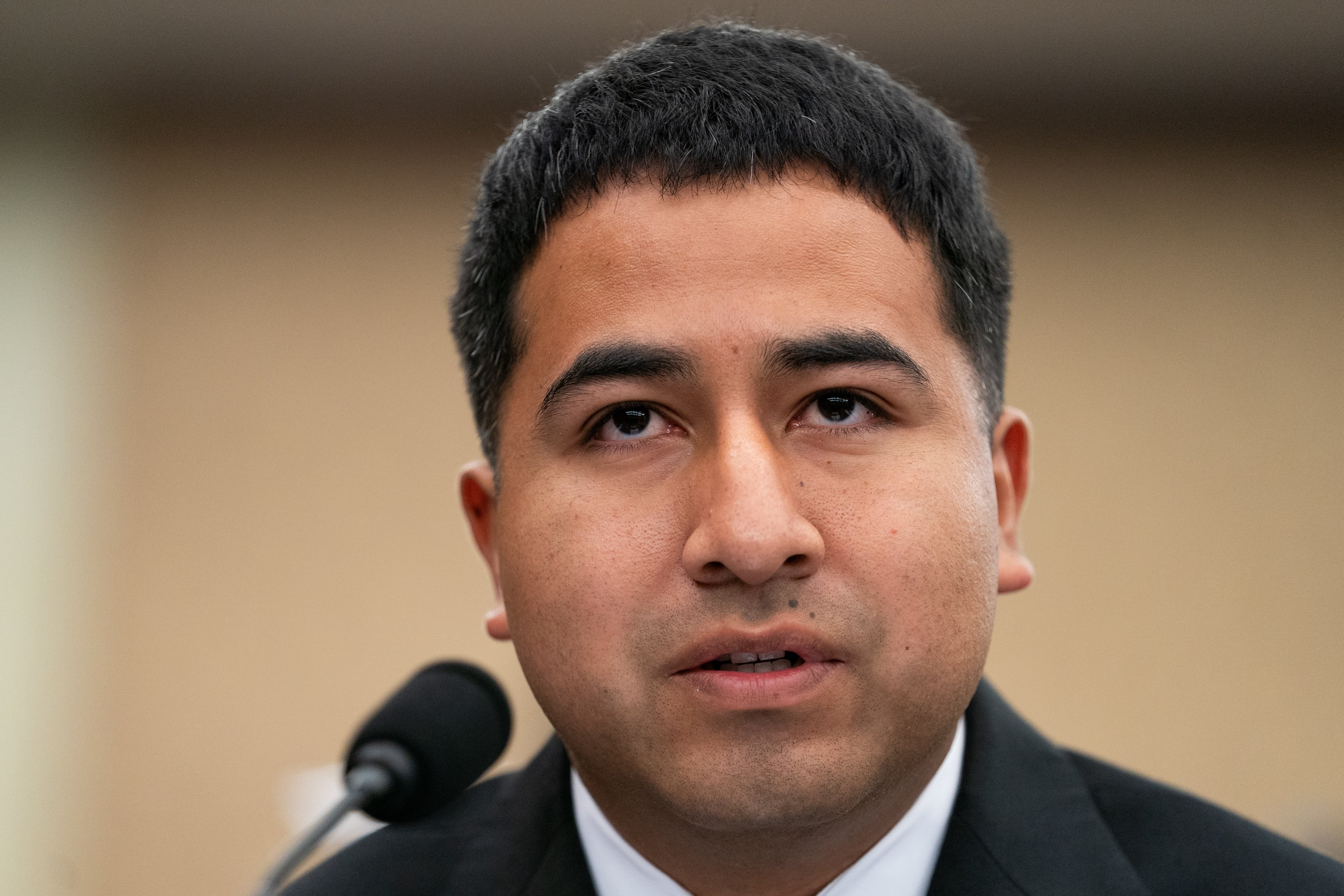The one-star Marine commander who recently deployed to Afghanistan says his troops are not operating on the front lines of the fight against the Taliban, but there is no doubt his Marines are in a combat zone.
"The whole thing is a combat zone," said Brig. Gen. Roger B. Turner Jr., who leads Task Force Southwest, which includes roughly 300 Marines who arrived in Helmand province several weeks ago.
"We're not on the front lines," he said. Nevertheless, "we have had people that have been exposed to some danger, but I don't want to get into any specifics and kind of give the enemy intelligence of what they might be doing or not doing."
Turner voiced no concerns about restrictions placed on his Marines to stay out of harm's way or to reduce risk of casualties.
"We have the ability to put Marines where we need to put them in order to make the Afghan forces more capable and effective," Turner said.
However, he said he currently does not believe Marines need to accompany their Afghan partners into combat. "I don't see that as a requirement right now, so far, yet," Turner said.
On April 29, the roughly 300 Marines in the task force formally assumed the mission of advising and assisting Afghan security forces in Helmand, where the Army's Task Force Forge left off.
It marks the first time that a large Marine unit has deployed to Afghanistan since 2014, when official U.S. combat operations there concluded. The Marines will work with the 505th Zone National Police and the Afghan National Army's 215th Corps.
Afghan security forces have already launched several operations in the Helmand province since the Marines first arrived in country a few weeks ago, Turner said. While Marines have helped plan some of those missions, Afghan troops and police have conducted most completely on their own.
"Honestly, the Afghans are still capable of doing most everything they need to do, so we're able to just kind of plug in where we need to plug in," Turner said.
One of the Marines' priorities over the next nine months will be to help rebuild 215th Corps, which has deteriorated since Marines left Afghanistan in 2014, he said.
"We're really doing more 'train the trainer' than we're doing direct training of Afghans," Turner said.
With Afghan battalions deployed in Helmand detached from their parent brigades, the Afghan Army currently has "some ill-positioned units that have got people in the wrong places," Turner said.
The Marines' role will include helping to retrain, re-equip and reorganize the Afghan army battalions that make up the 215th Corps, after which they will rejoin their brigades, Turner said.
Another goal of the Marines' deployment will be to help Afghan troops and police reclaim areas of Helmand that are now under Taliban control, he said.
"You have the Taliban out, they are still putting IEDs all over the place, indiscriminately targeting the population," Turner said. "They're taxing all the farmers for profits off of the poppies to finance their operations. A lot of people in Helmand are living under the tyranny of the Taliban and this indiscriminate killing that they do."
It has been nearly 16 years since the U.S. invaded Afghanistan following the Sept. 11, 2001 attacks to oust the Taliban, which was sheltering al-Qaida. Initially, the operation was seen as resounding success, but when the U.S. military became focused on Iraq, the Taliban managed to claw its way back.
The war in Afghanistan rarely gets any attention from the mainstream media or politicians, but Turner said the U.S. military's mission there is still significant.
"There's 20-odd terrorist groups that operate in Afghanistan that if we didn't succeed here, they would no doubt grow in capability," Turner said.





